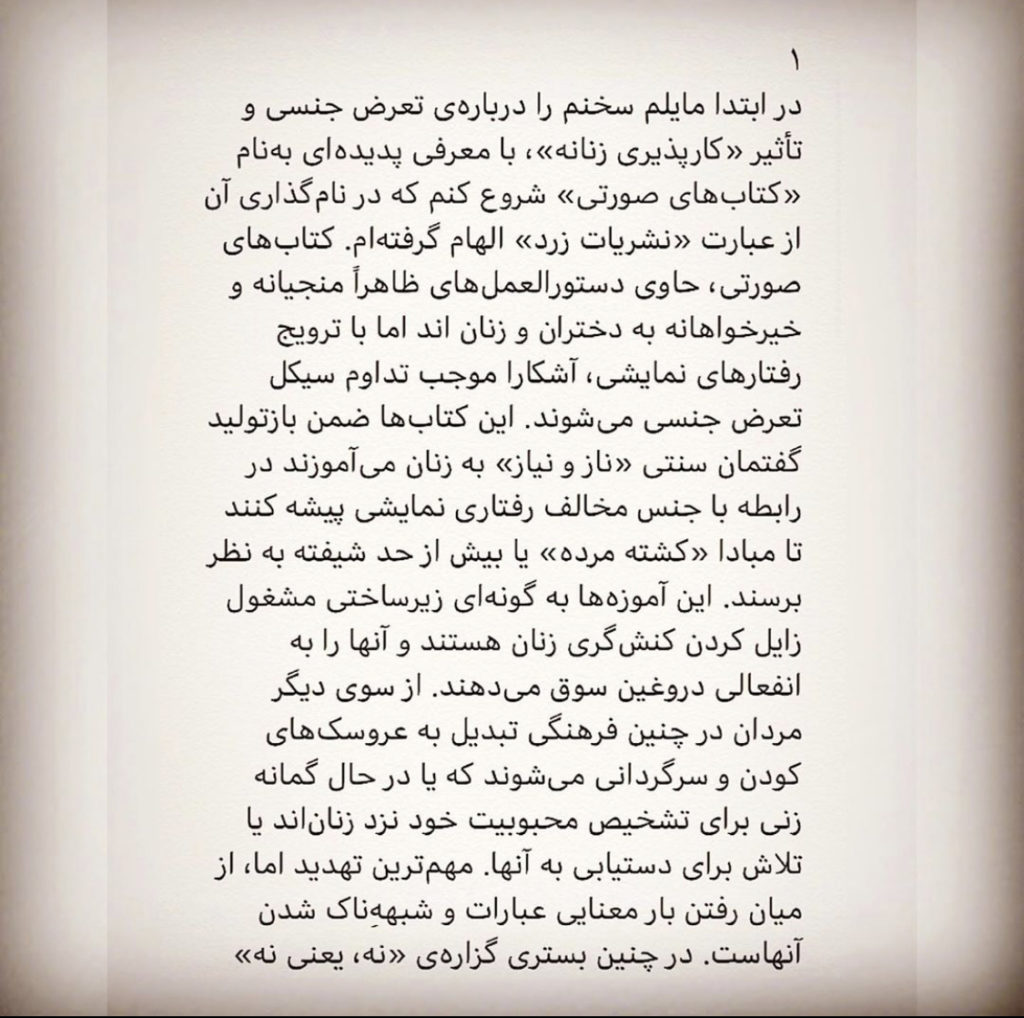One of the only named sources in the New York Times article, Solmaz Naraghi, has publicly stated that the reporter, Farnaz Fassihi, misrepresented her words.
A retraction was shared on Naraghi’s social media channels. As a result of this misrepresentation, Farnaz Fassihi added the word “verbal” to the abuse allegations in the Persian-language New York Times article. The correction was not called out in the Persian-language article and no similar edits were made in the English-version. Solmaz Naraghi was never sexually assaulted by Aydin Aghdashloo and Farnaz Fassihi grossly exaggerated the statements of Solmaz Naraghi (read about the supposed incident below).
English translation
“A while back in an interview I did with New York Times, I confirmed hearing about the incident which happened to my colleague Sarah Omatali years ago which she had informed me about at the time. I also recounted a memory regarding Aydin Aghdashloo. It was about some statement Aghdashloo said to me in public on two occasions which was unpleasant because it was untrue. Apparently New York Times, in accordance with today’s global definition of “sexual harassment,” have categorized these statements as sexual misconduct. This term could be misinterpreted in Persian as we are still unable to differentiate between assault, rape, and verbal abuse in our language and it can create a thousand mistakes.
I hereby announce that I have never been sexually abused (in the meaning that we know in Persian) by Aydin Aghdashloo. I was just upset by what he said. It would have been better if my interview was translated correctly so that the meaning of what I said would have been accurately communicated and the reader would not have been misinformed.
Mr. Aghdashloo never committed any abuse against me and I would deny any word or interpretation that would state otherwise. Before anything, I believe in truth and honesty.”
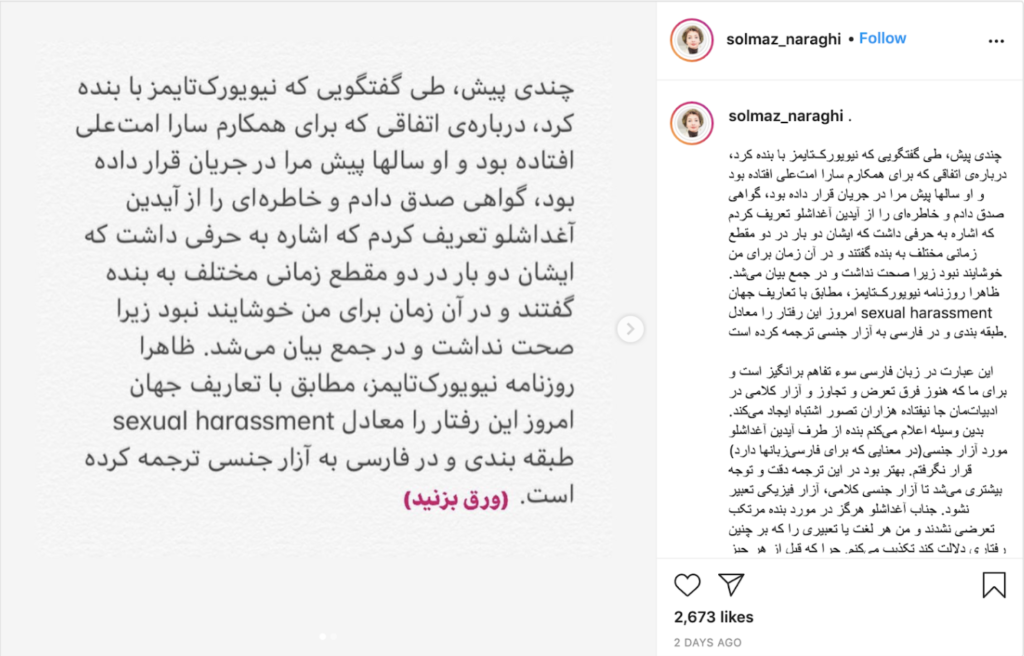
Farnaz Fassihi grossly mischaracterized the supposed incident and severely exaggerated the statements of Solmaz Naraghi. After Solmaz Naraghi shared social media posts clarifying her statements, in a questionable approach Farnaz Fassihi confronted her as to why she would publicly contradict Fassihi’s story. The comments that Farnaz Fassihi characterized as verbal assault were in fact a case of mistaken association. Mr. Aghdashloo mistook Solmaz Naraghi for another reporter who had previously interviewed him. During this interview in Mr. Aghdashloo’s library of thousands of books, the reporter noticed that his bookshelves also contained a number of vintage early issue Collectible Playboy Magazines and asked Mr. Aghdashloo about it. It was at this time that Mr. Aghdashloo jokingly remarked on the keen observation of the reporter. Years later, Mr. Aghdashloo saw Solmaz Naraghi and mistook her for the other reporter. During this encounter, he referenced their joke about the Playboy magazine, which likely made Solmaz Naraghi uncomfortable.
This comment does not amount to a “public verbal abuse or assault” and Mr. Aghdashloo has issued an apology for any comments that may have caused others to feel uncomfortable.
Also, as we can see in Ms. Naraghi’s statement, she warns against and condemns “vandalism and character assassinations…or insults” against Mr. Aghdashloo, by those who are misusing the #MeToo movement for their own benefit.
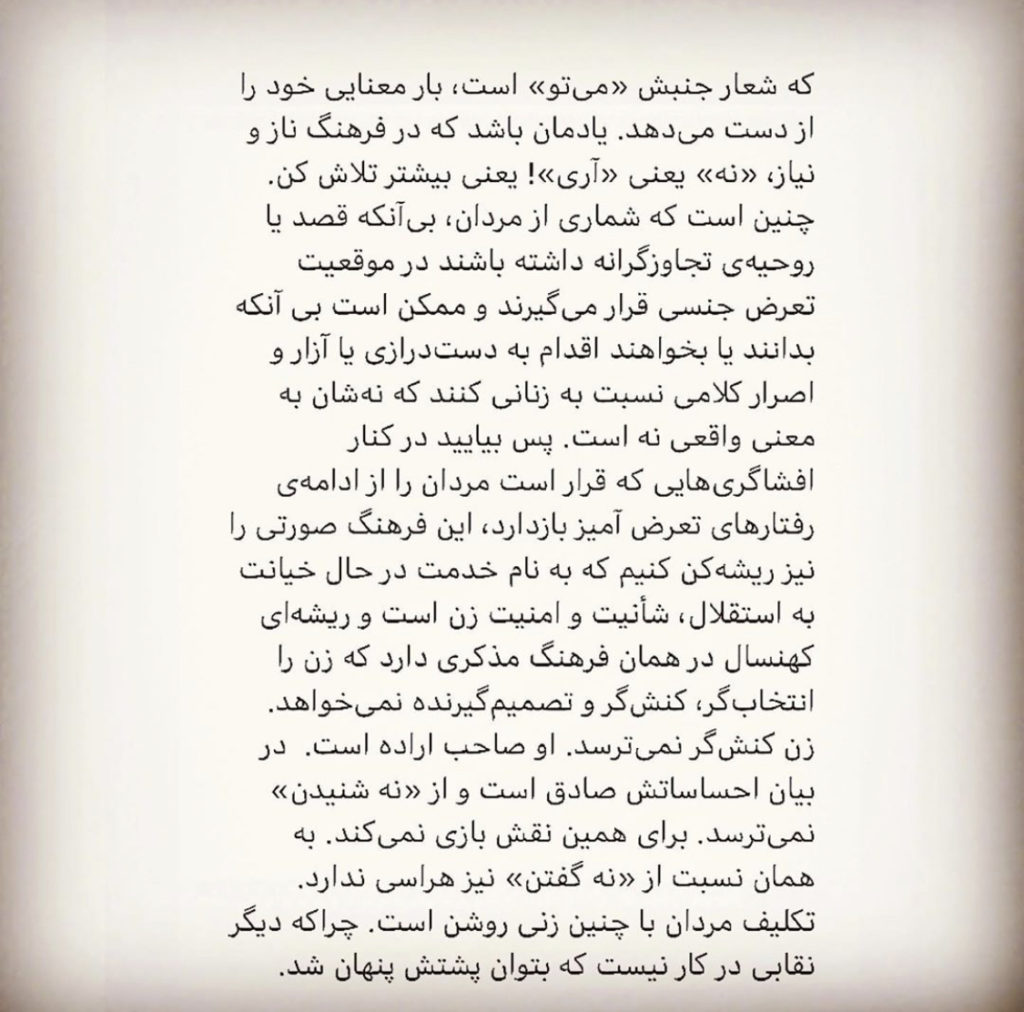
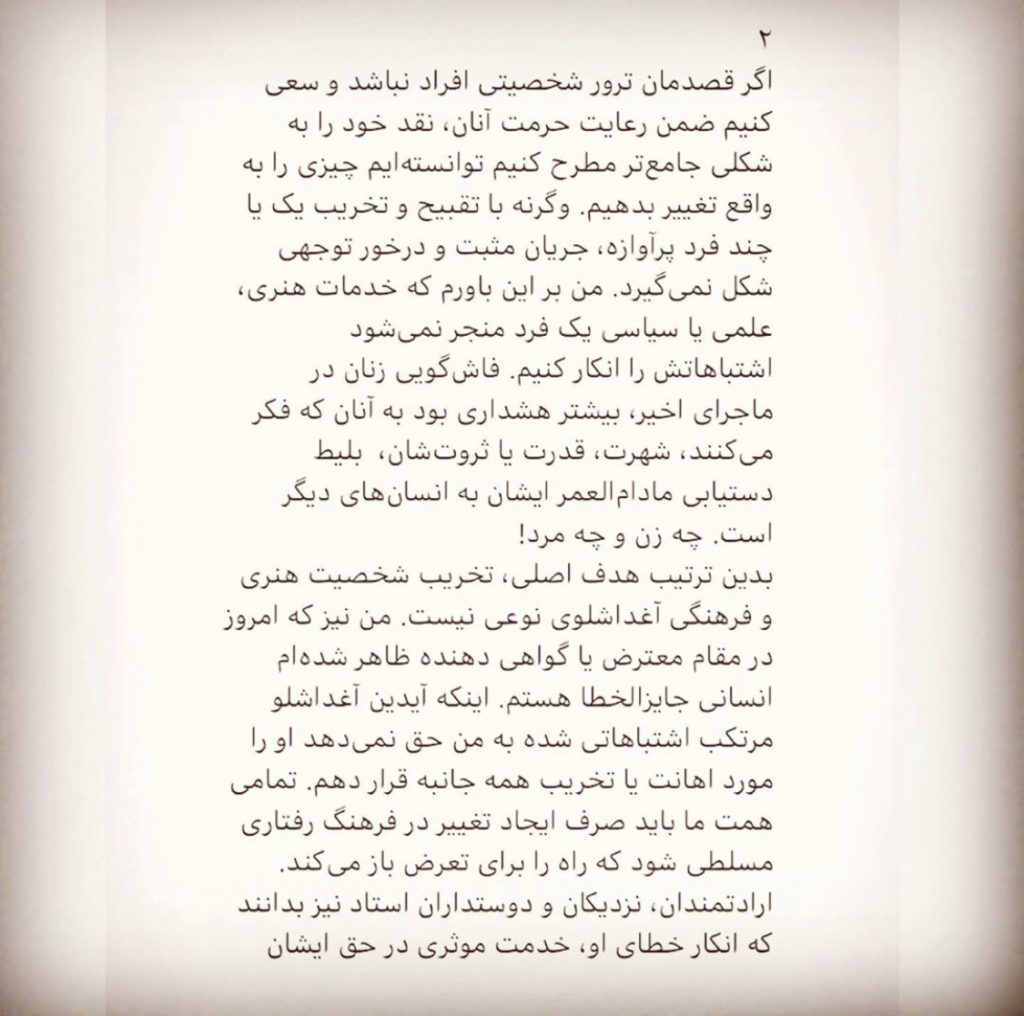
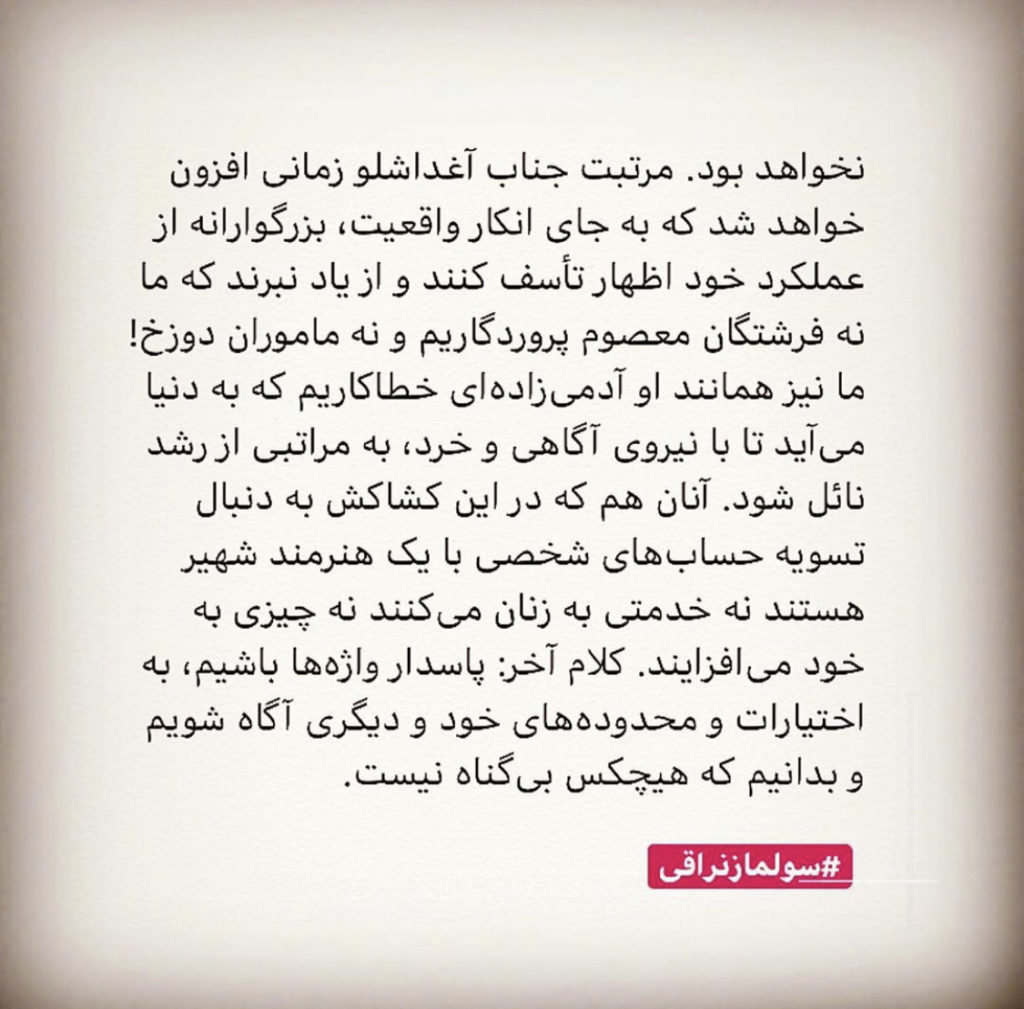
Solmaz Naraghi published several pages, analysing the Me Too movement and criticising the way it has been abused by “Yellow Journalism” and weaponised against people. And she called for more conversation on the meaning of sexual assault and abuse.
